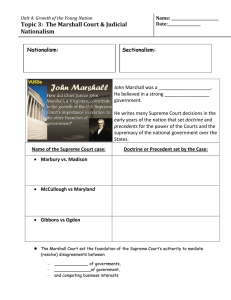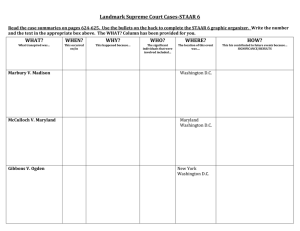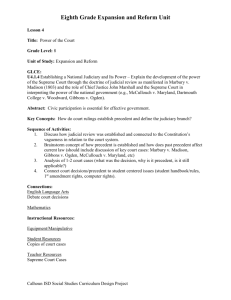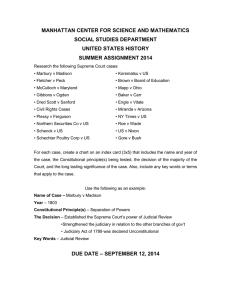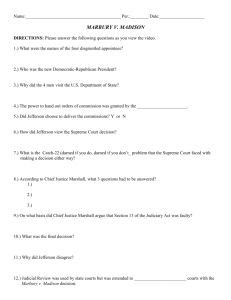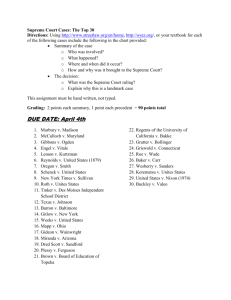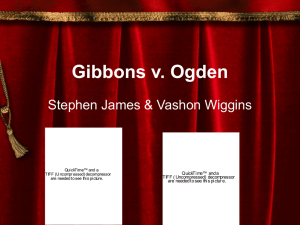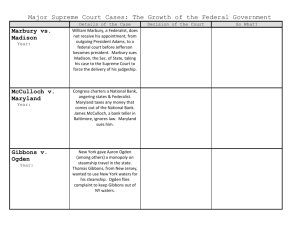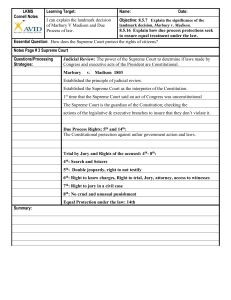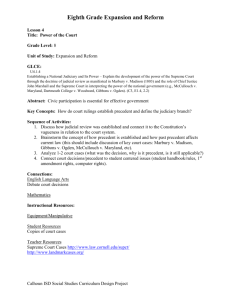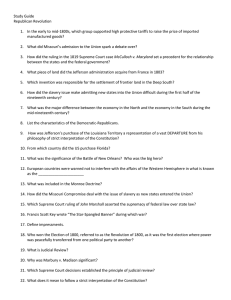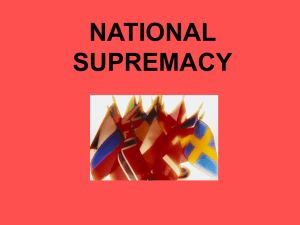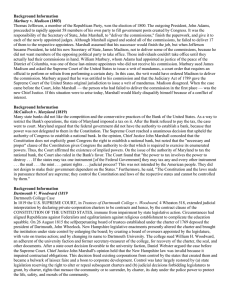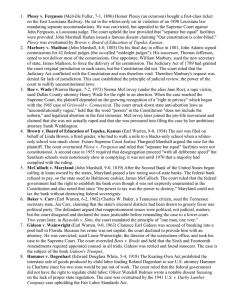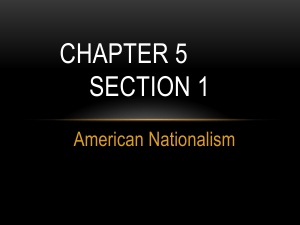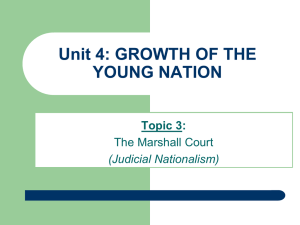Regentsprep.org
advertisement
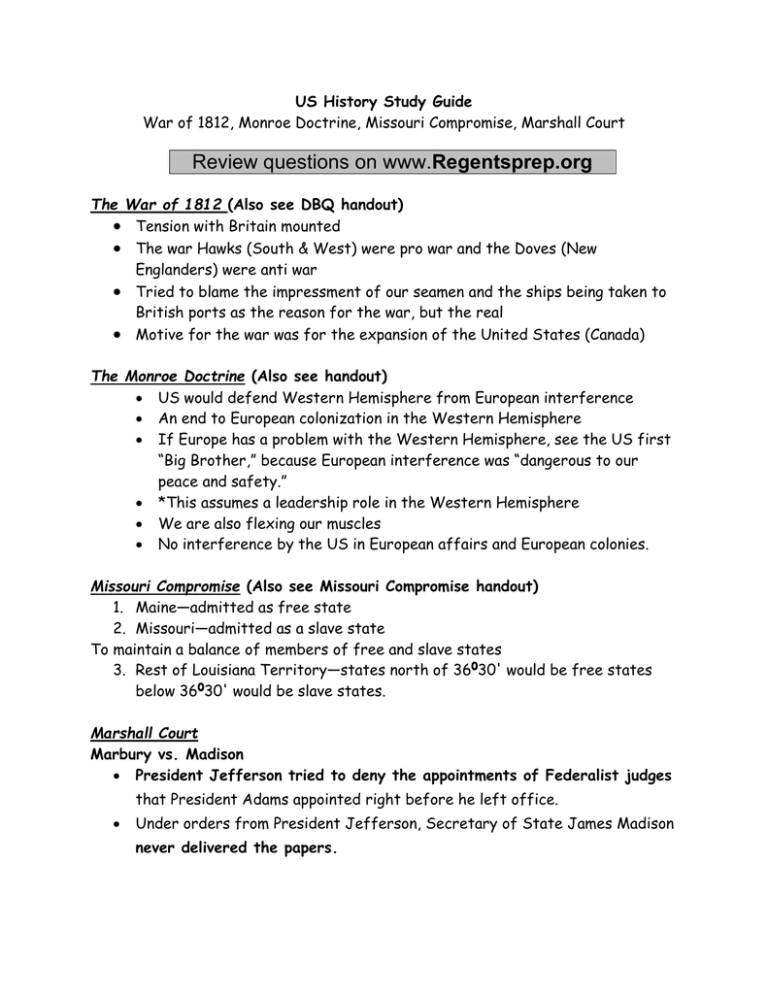
US History Study Guide War of 1812, Monroe Doctrine, Missouri Compromise, Marshall Court Review questions on www.Regentsprep.org The War of 1812 (Also see DBQ handout) Tension with Britain mounted The war Hawks (South & West) were pro war and the Doves (New Englanders) were anti war Tried to blame the impressment of our seamen and the ships being taken to British ports as the reason for the war, but the real Motive for the war was for the expansion of the United States (Canada) The Monroe Doctrine (Also see handout) US would defend Western Hemisphere from European interference An end to European colonization in the Western Hemisphere If Europe has a problem with the Western Hemisphere, see the US first “Big Brother,” because European interference was “dangerous to our peace and safety.” *This assumes a leadership role in the Western Hemisphere We are also flexing our muscles No interference by the US in European affairs and European colonies. Missouri Compromise (Also see Missouri Compromise handout) 1. Maine—admitted as free state 2. Missouri—admitted as a slave state To maintain a balance of members of free and slave states 3. Rest of Louisiana Territory—states north of 36 30' would be free states below 36 30' would be slave states. Marshall Court Marbury vs. Madison President Jefferson tried to deny the appointments of Federalist judges that President Adams appointed right before he left office. Under orders from President Jefferson, Secretary of State James Madison never delivered the papers. Marbury sued Madison demanding that the Supreme Court order the Secretary of State to let him take his office. Chief Justice John Marshall ruled against Marbury, declaring it was against the Supreme Court for the Supreme Court to order the executive branch. **This was a victory for the Supreme Court for the case established the power of Judicial Review McCulloch v. Maryland, 1819 States were unhappy with the establishment of the second bank of the US Maryland didn’t feel it was constitutional to have a national bank. They charged the national bank a $15,000 tax for operating in Maryland. The Supreme Court Ruled: it was necessary and proper to have a national bank and the tax was unconstitutional because the Federal Government supersedes the state government—national supremacy. Gibbons v. Ogden, 1824 Ogden received a license from NY State to operate steam-powered ferry boats between NY and NJ Gibbons received a license from the Federal Government to carry passengers from NJ to NY Ogden asked NY to forbid Gibbons landing rights to the port of NY and NY issued the injunction The Supreme Court Ruled: The national government can regulate interstate commerce and the federal government supersedes the state government—national supremacy.
